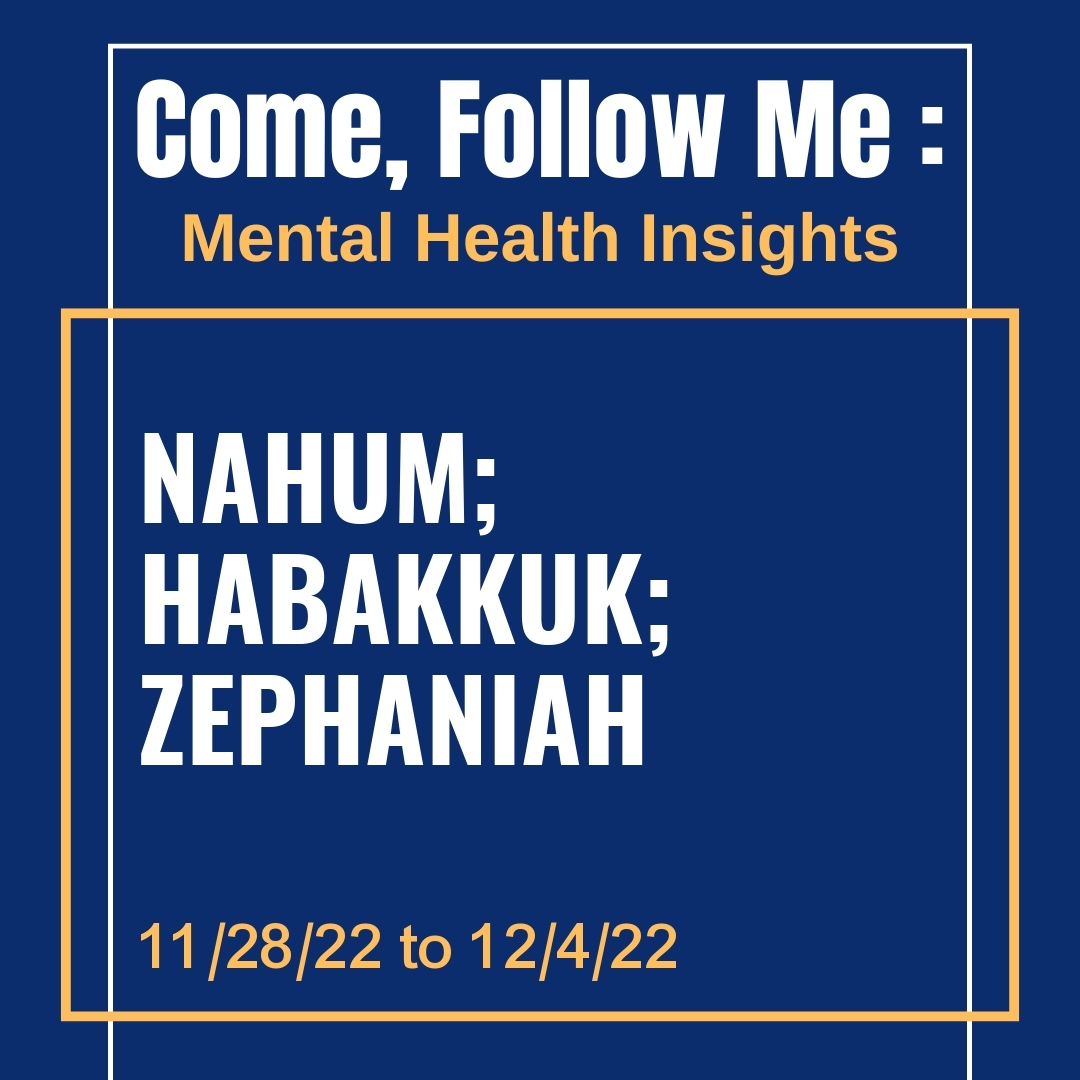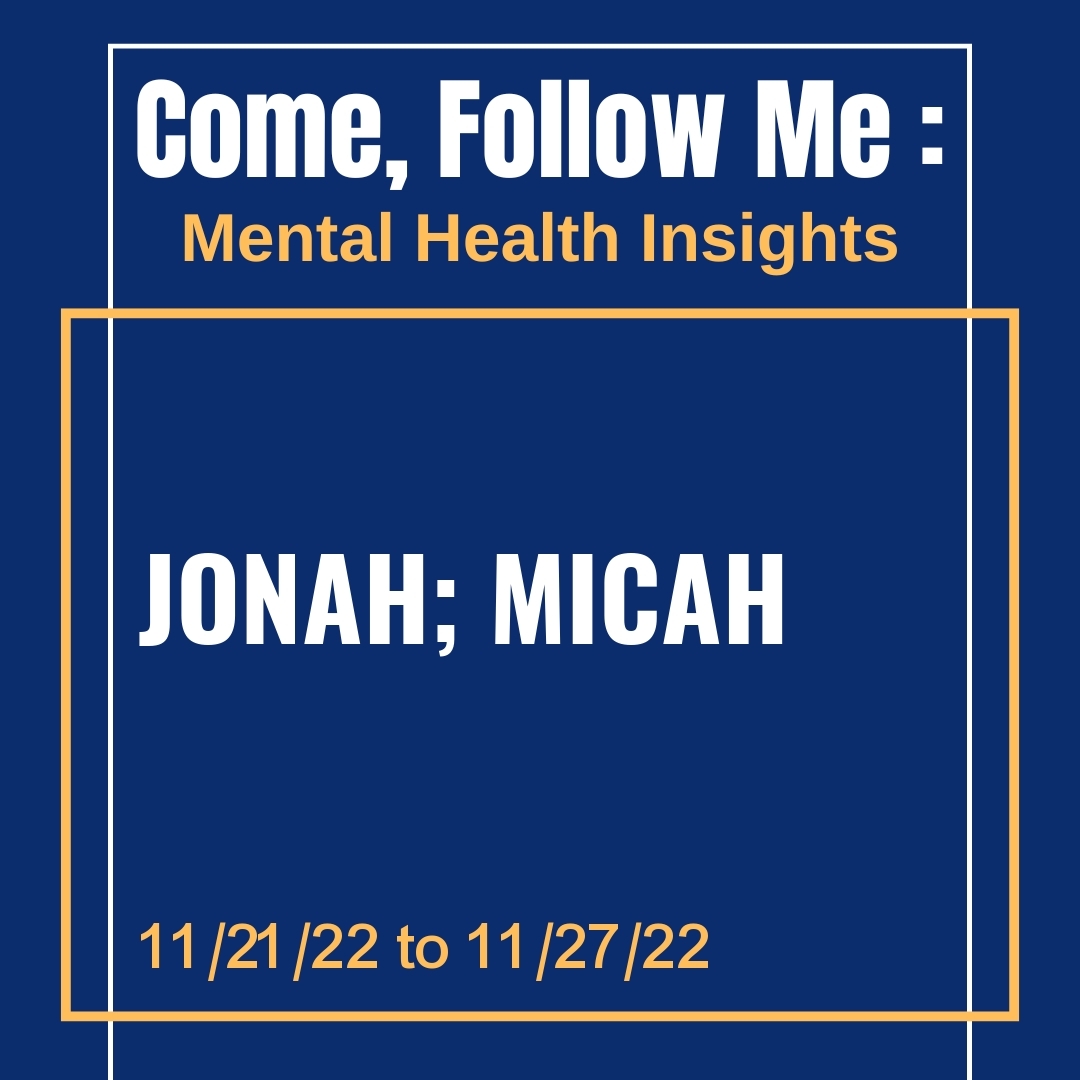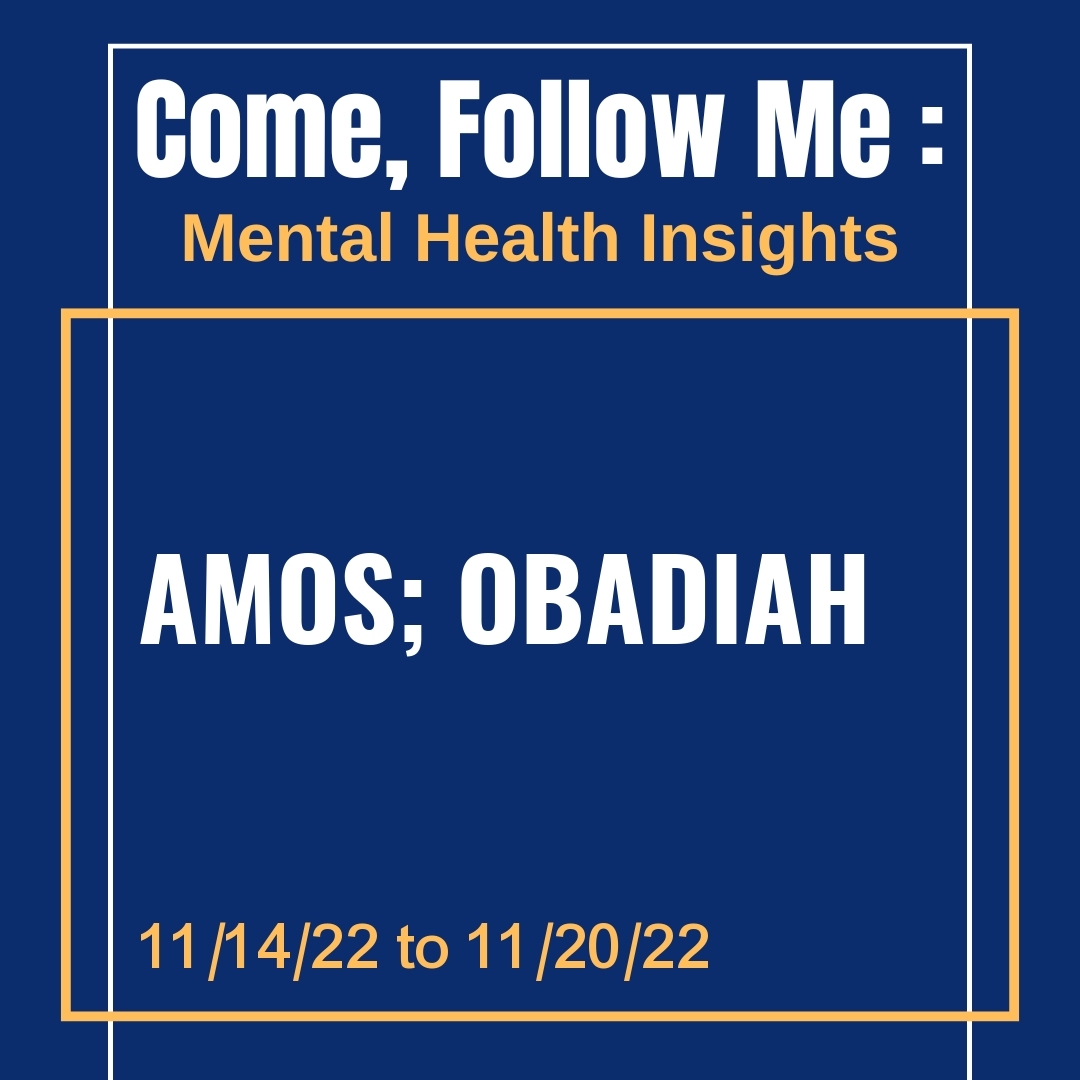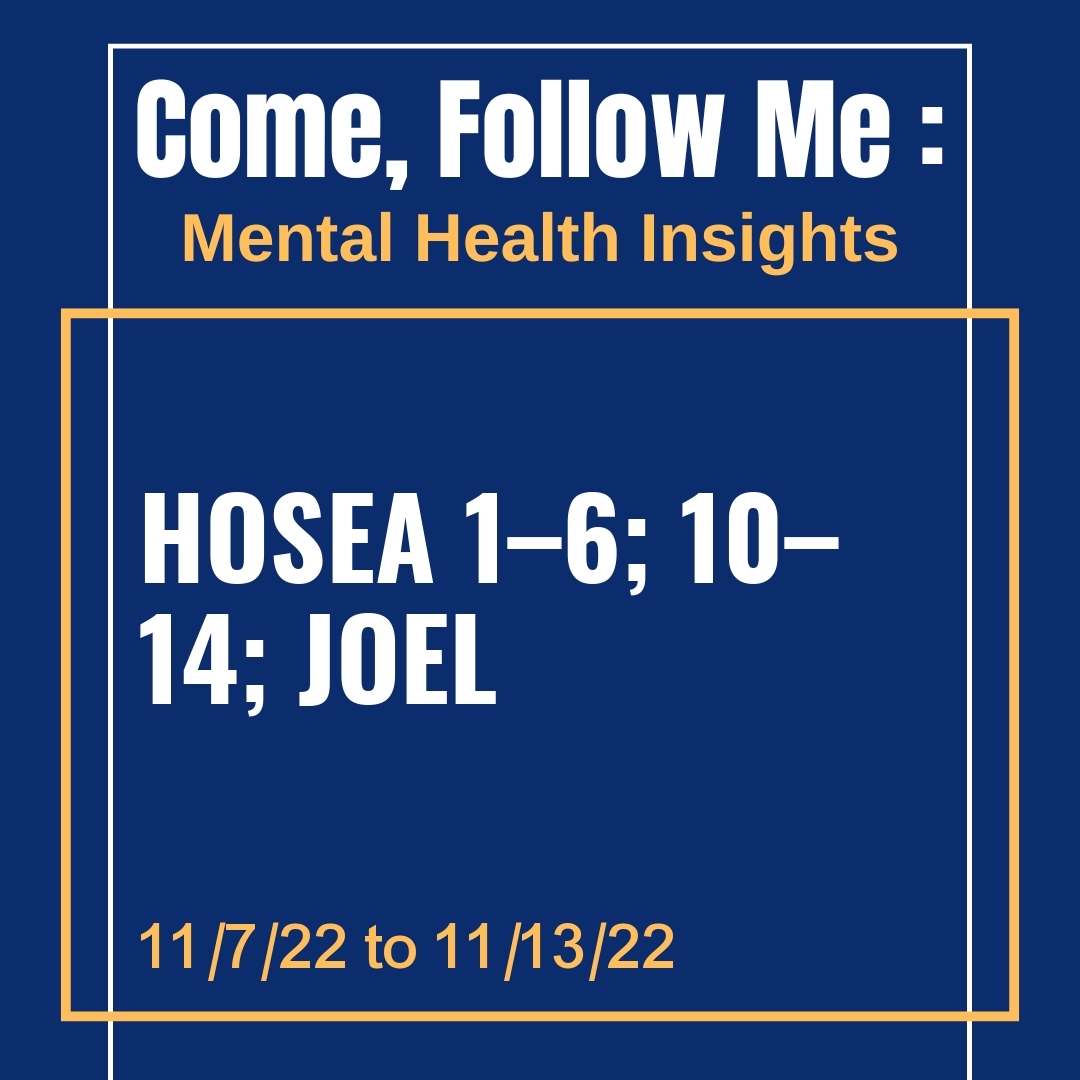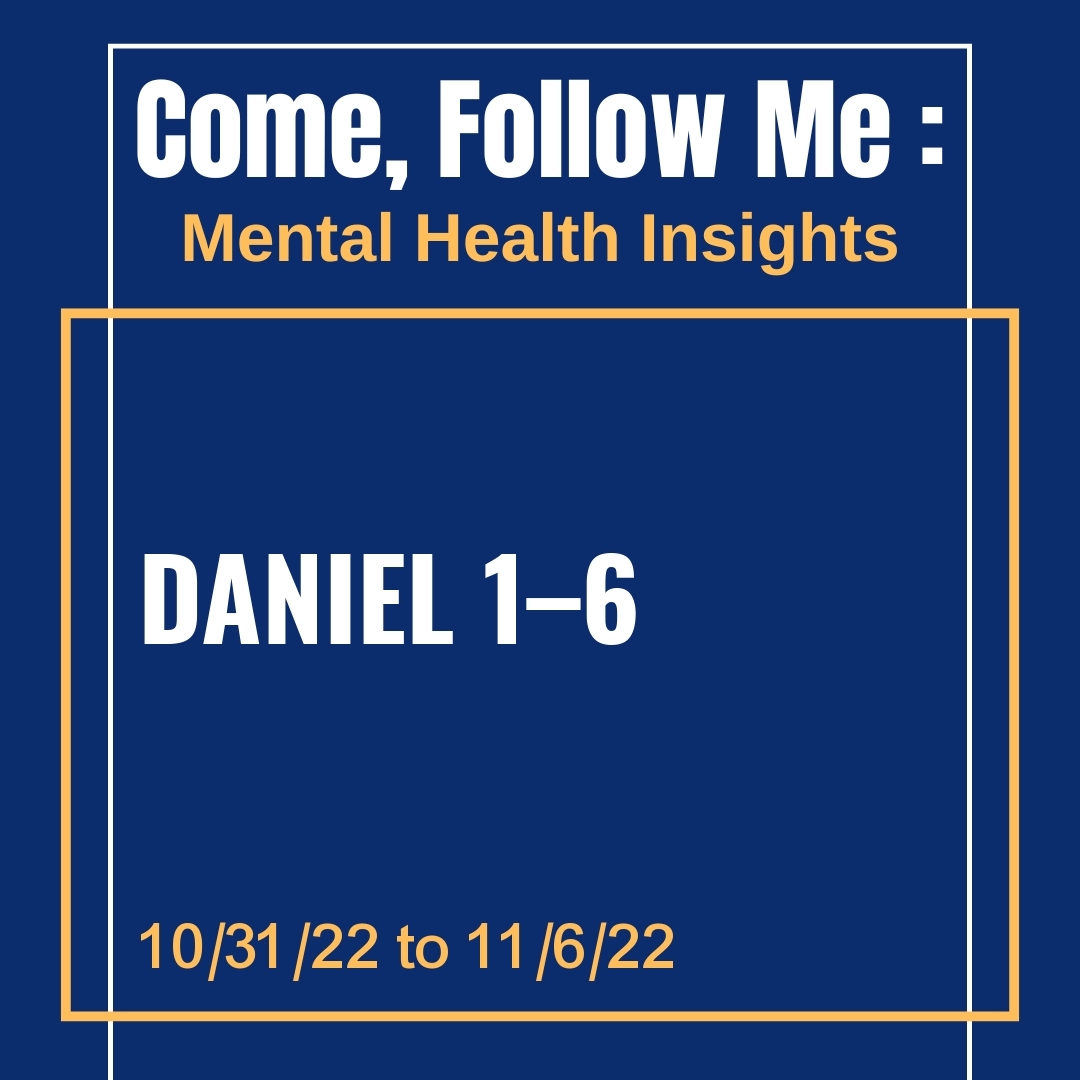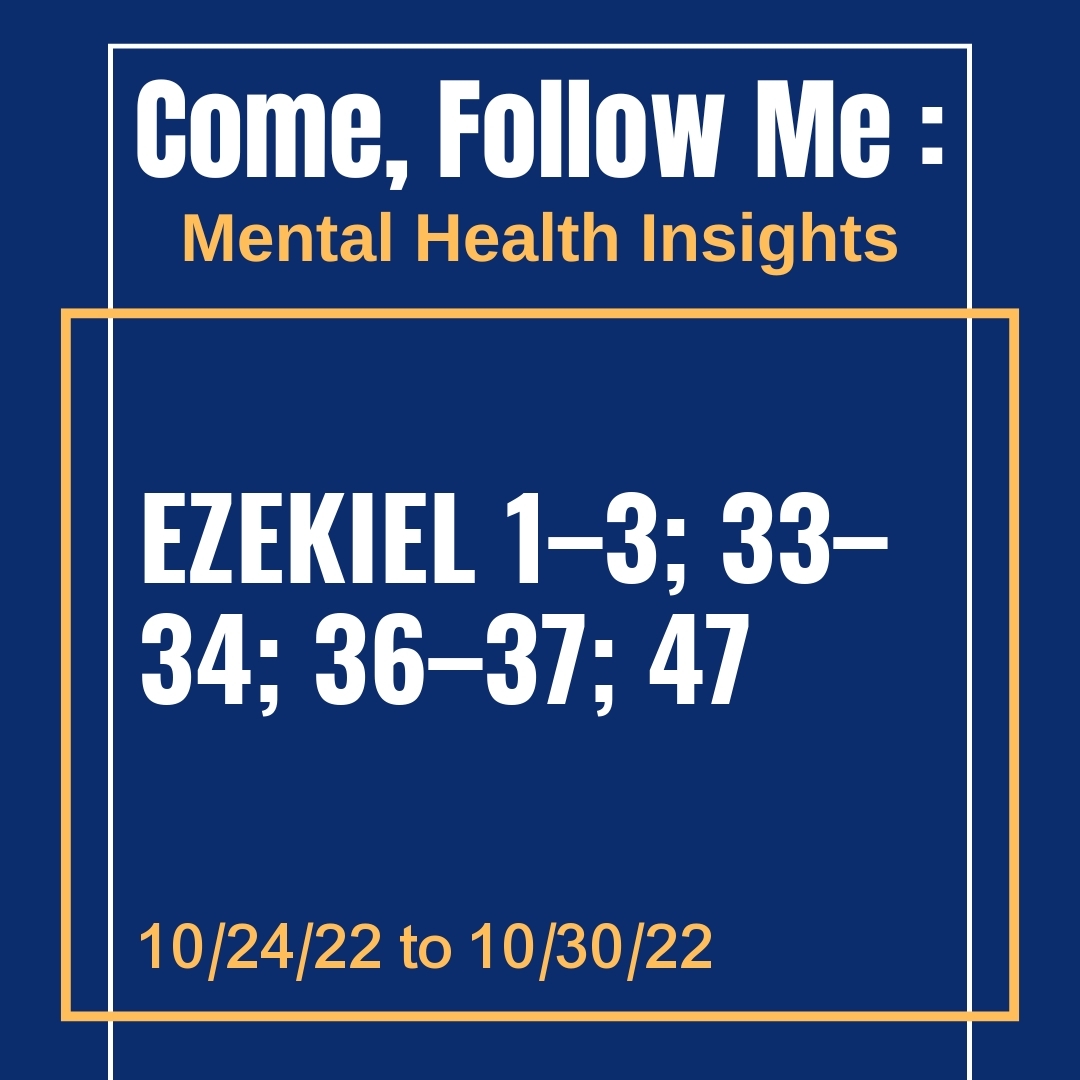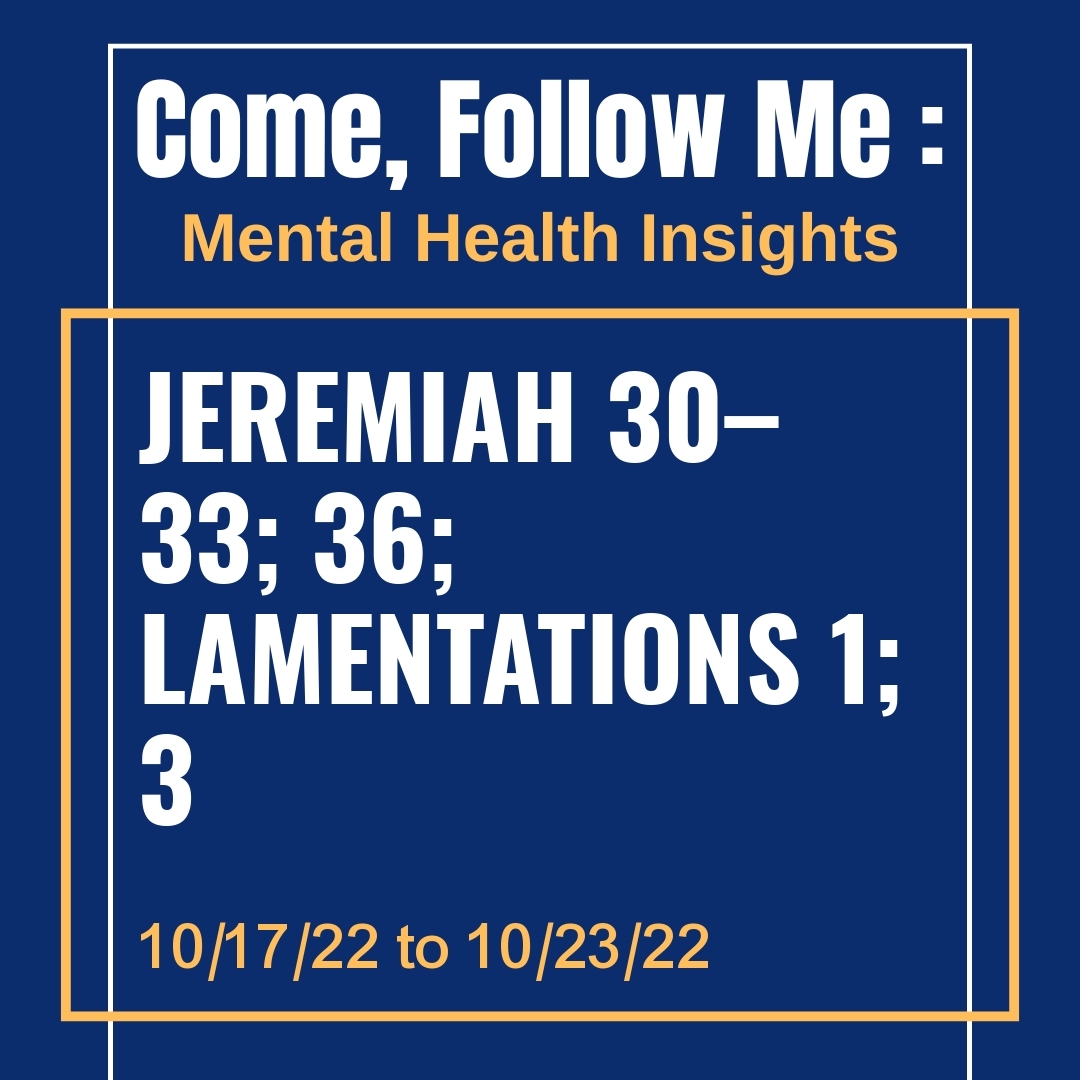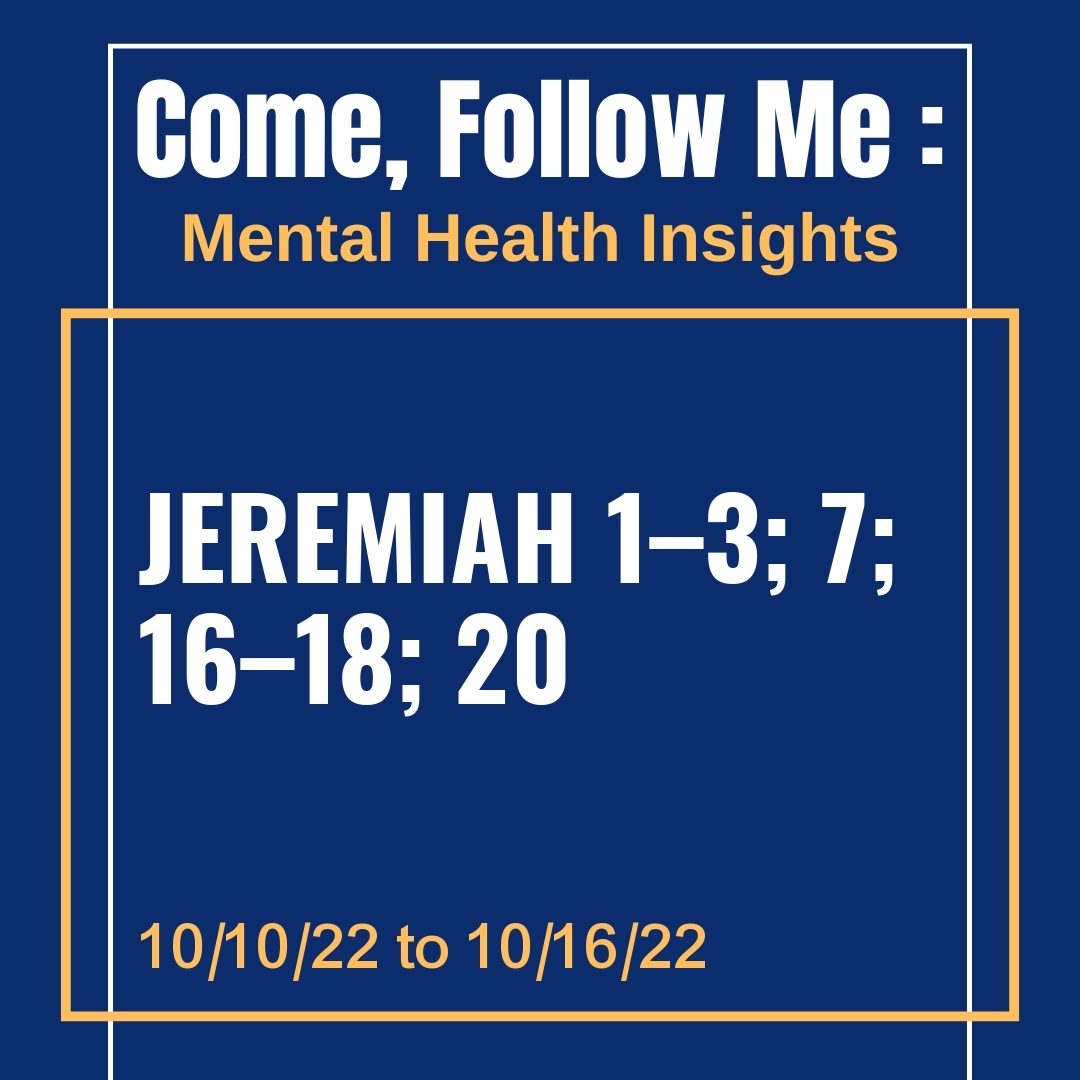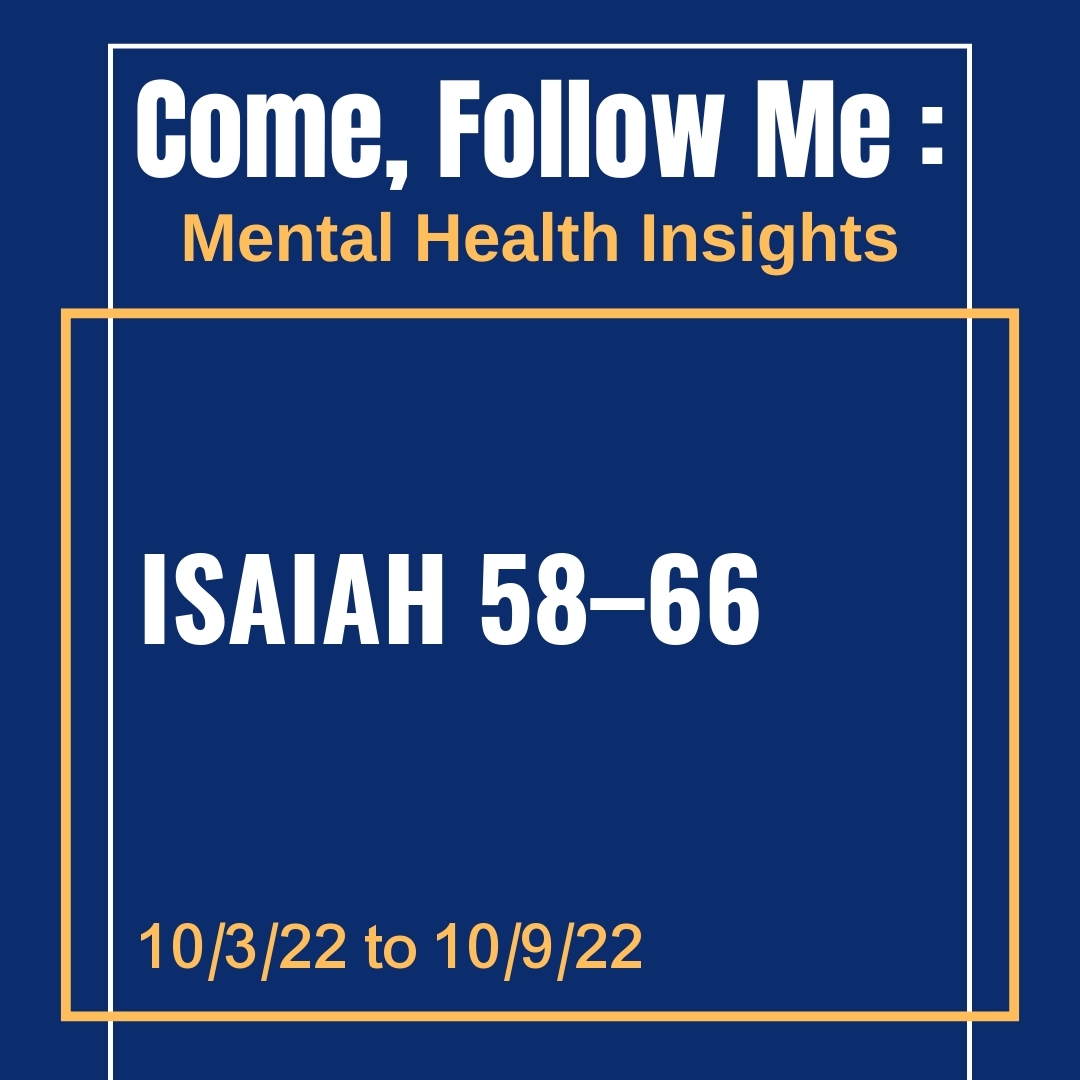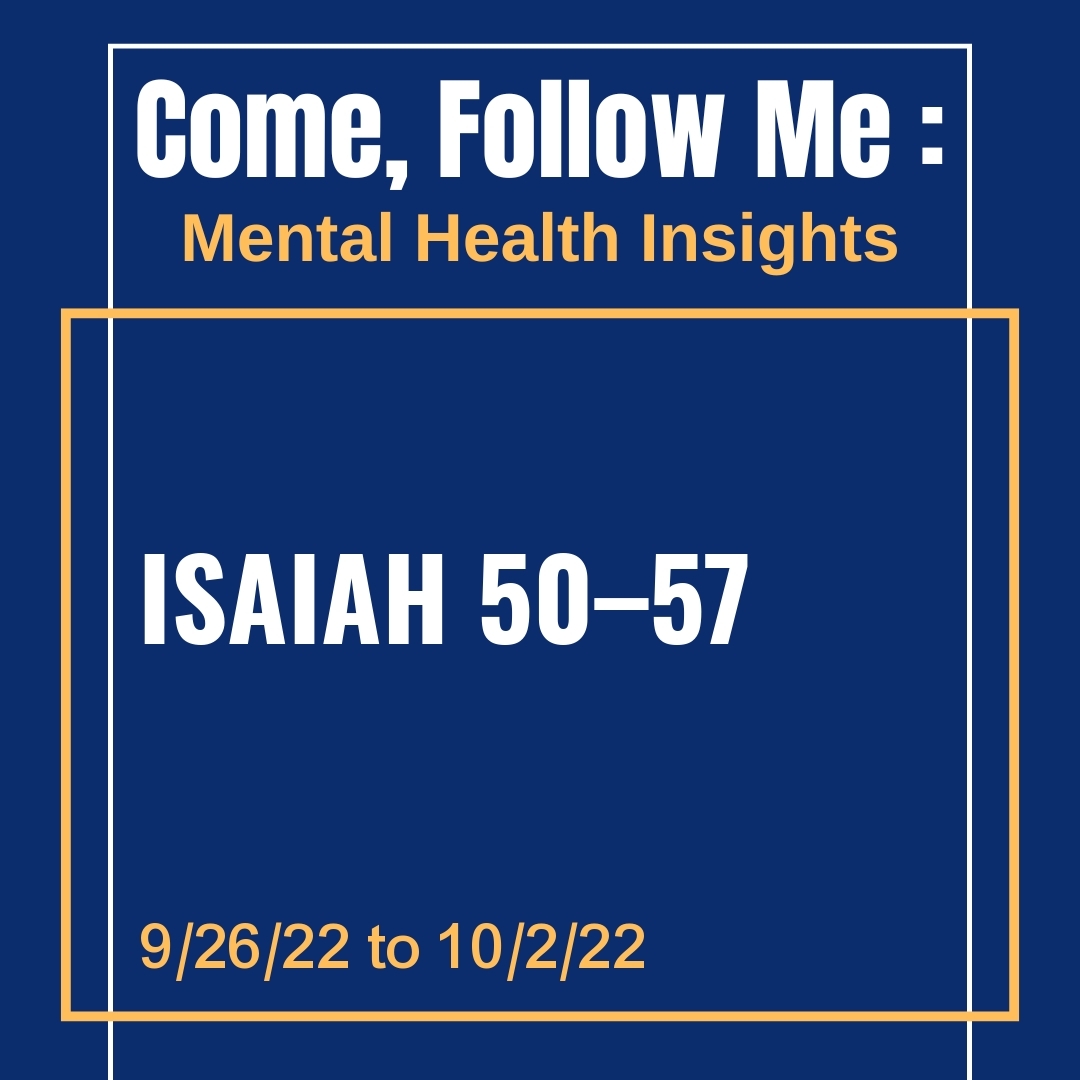Join Dr. David T. Morgan for a weekly discussion about some principles from the weekly Come, Follow Me lesson and learn specific applications to improve mental and emotional health.
In this episode we'll talk about the Books of Nahum, Habakkuk, and Zephaniah. All of these prophets seemed to have lived around the same time and were possibly contemporaries of Jeremiah and Lehi. We'll talk about how our relationship with God is dependent upon our obedience to His commandments; either good or troubling consequences result based on our choices. We'll also discuss the question of "why bad things happen to good people" and address two key points that can help develop greater insight into that idea. We will explore the truths that our Heavenly Father loves us perfectly, and that so-called "tragedies" may actually be blessings in the end result.
In this episode we'll talk about the Books of Micah and Jonah. The Book of Micah appears to be written in the first person, containing Micah's prophecies and warnings. The Book of Jonah is more story-like, essentially a cautionary tale of how not to act when the Lord commands something. We'll talk about how Micah's background may have helped him better understand the people he served. We'll further discuss how Jonah's disobedient behaviors led to distress, and the distress did not change until he made better choices. We'll talk about how with mental health issues, we need to be accountable and make needed changes if we want to see forward movement.
In this episode we'll talk about the Books of Amos and Obadiah. They were both prophets but preached to different populations and also lived about two hundred years apart from one another. We'll talk about the importance of prophets, how their counsel can help us avoid difficult, and how we can find answers to our personal problems by following their teachings. We'll also talk about the concept of being "saviors on Mount Zion" and how this relates to supporting those with difficulties, including mental health trials. We will discuss how doing for others, what they can't do for themselves, is at the heart of Christlike service and behavior.
In this episode we'll talk about the Books of Hosea and Joel. They were both prophets but Hosea preached to the northern kingdom of Israel and Joel preached to the southern kingdom of Israel. We focus on the writings of Joel and two specific concepts. The first is how change, although uncomfortable, is a key element in our eternal progression and should be feared or avoided. The second is how that, in order to make positive mental health changes, we need to align our beliefs with truth. Increasing our ability to have the Holy Ghost in our lives can definitely help with this process.
In this episode we'll talk about the book of Daniel. Some of the most beloved stories of the Old Testament are found in this book, including Daniel's interpretation of King Nebuchadnezzar's dream, Daniel in the lion's den, and the story of Shadrach, Meshach, and Abednago. We'll discuss the idea that faith has to come before the miracle, as this is the only way faith can increase. We'll also discuss the idea of "but if not," which is letting the Lord's will prevail in our lives, regardless of the outcome.
In this episode we'll review the Book of Ezekiel. Ezekiel was a prophet called to preach to the captive Jews in Babylon. We'll talk about the Lord's mercies as He continues to support us regardless of the choices we make. We will discuss the idea of watchmen on the tower, or prophets, and how they warned people anciently and still warn us today. We'll talk about warnings and guidance that modern day prophets have provided about mental health issues, and how spiritual practices can be a helpful, but not exclusive, source of healing when dealing with mental health challenges.
In this episode we'll talk about the last half of the Book of Jeremiah in addition to the Book of Lamentations. We'll discuss how the people of Israel did not heed Jeremiah's warnings, which ultimately led to their destruction. Yet after they continued in their wickedness and absolutely rejected the Lord, they were yet promised forgiveness if they repented. We'll talk about the power of forgiveness and how withholding forgiveness can negatively impact mental health. We'll also talk about how the Lord has commanded us to forgive, not so much for the effect it has on others, but for the ways in which it helps us grow and find greater happiness and peace.
In this episode we'll talk about the first half of the Book of Jeremiah. We'll discuss a little of Jeremiah's history, why his particular calling was so difficult, and how he struggled at times to stay positive. We will review how many righteous women and men throughout scripture have been called to pass through difficulty, and how righteousness does not guarantee an absence of life's struggles. We'll talk about how as we develop greater faith in Jesus Christ and look for potential positive outcomes in life, we can feel more hope and move forward with greater happiness.
In this episode we'll finish our study of the book of Isaiah. We'll talk about the law of the fast and the blessings that can come from diligent fasting and contributing a generous past offering. We'll discuss specifically about how some of these blessings can help improve our mental health. We will also talk about the idea of redemption and forgiveness, including the role of guilt in this process. We'll further discuss how as we align our beliefs about ourselves with the way the Savior feels about us, we can find greater happiness and peace.
In this episode we'll continue our study of the book of Isaiah. We'll discuss the concept of hope and how it can help with mental health concerns. We will discuss some of the promises made to the house of Israel and to us individually. We will further explore the enabling portion of the Atonement of Jesus Christ, what it is, and how it can specifically apply to us in our struggles and trials. We'll talk about how although some difficulties can be chronic, when we add hope to the equation we can experience a measure of relief.

